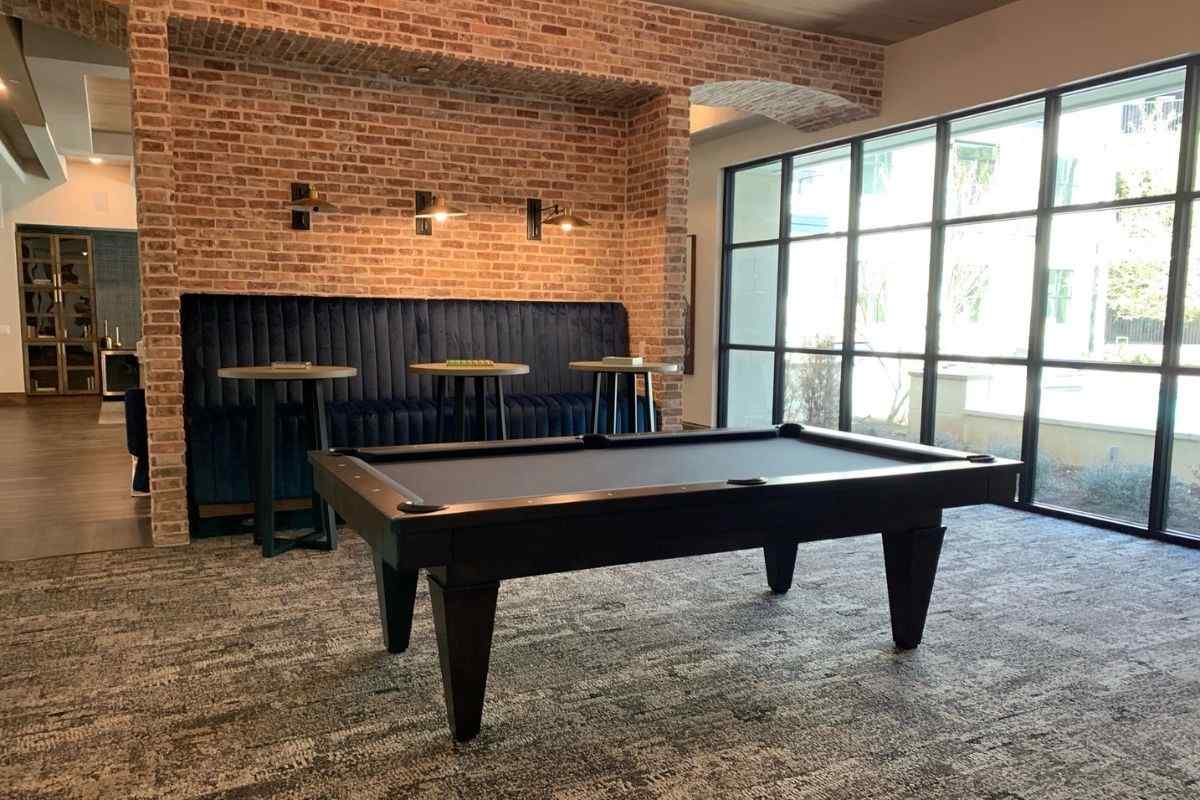Understanding the weight of a Standard Pool Table
Are you in the market for a pool table but puzzled about the weight of the table? Choosing the right pool table involves considering various factors that impact its weight. Understanding these factors can help you make an informed decision that lines up with your preferences and space constraints when looking at different types of pool tables. Let’s look deeper into the intricacies of what makes for the heaviest type of table, exploring the contributing factors including the playfield materials, pool table materials, pool table size.
Wood or Slate Playing Surface: The Weight Dilemma
The choice between a wood or slate playing surface is fundamental and significantly affects a pool table’s weight. On a billiards pool table, the playing surface will be located underneath the pool tablecloth. Slate bed pool tables, known for its smoothness and consistent playing surface, are often preferred by serious players. Slate is a stone that is mined out of mountains and can remain consistent because it does not warp. Slate playing surfaces can add several hundred pounds to the total weight of a pool table compared to wood surfaces.
MDF or wooden playing surfaces can be found on some billiards tables, these are typically entry-level pool tables that you can find in a big box store, these pool tables will weigh several hundred pounds less than slate pool tables. MDF surfaces on a pool table are less durable than slate pool tables and wear much faster.
Thickness of the Bed: Stability vs. Weight
The thickness of the bed, referring to the playing surface beneath the felt, is another crucial factor in determining the weight of your pool table. A thicker bed provides better stability and durability, enhancing the overall playing experience. Most American made slate pool tables come with a 1” thick slate, however, you can find some that are a little less (1/2”) or a little more (up to 2” thick). Many professional tournament-grade tables opt for playing surfaces with typical thickness ranging from 1 to 2 inches.
It is also important to understand the configuration of your pool table slate; there are one-piece slate and three-piece slate playing surfaces. Most recreational or residential type pool tables will have a 3-piece slate playing surface. The seams of these pool tables would be sealed together using either putty or bee’s wax. The one-piece slate pool tables are often used in tournament or pool hall type settings.
Size Matters: Weight Variation Across Sizes
Pool tables come in various sizes, with the most common being 7 feet, 8 feet, and 9 feet; however, pool tables can come anywhere from 6’-12’. Unsurprisingly, larger tables weigh more than smaller ones. The size of a pool table directly correlates with the amount of material required for construction, including heavier frames and playing surfaces. As a result, 9-foot pool tables typically weigh more than their 7-foot counterparts. 12’ pool tables are typically snooker tables, a game commonly found in European game rooms.
Pool Table Materials: Impact on Weight
When evaluating pool tables, consider the materials used and their implications for weight, durability, and aesthetics, as well as the type of pockets. Tables with ball return systems tend to be heavier due to the additional mechanisms involved, while tables with drop pockets may be lighter but offer a more traditional look and feel.
Solid woods like oak or maple are often used for tables with drop pockets, providing durability, high-quality craftsmanship, and a classic appearance. Wood tables depending on the style can be one of the heavier tables on the market, especially depending on the table’s leg style. In contrast, tables with ball return systems may incorporate composite materials or engineered wood to reduce weight while maintaining functionality.
Average Weight Across Sizes
For a clearer perspective, here’s the average weight range for pool tables of different standard sizes:
7-foot Pool Table: Approximately 700 to 900 pounds.
8-foot Pool Table: Roughly 850 to 1,200 pounds.
9-foot Pool Table: Typically weighs between 1,000 and 1,500 pounds.
These averages provide a baseline, but actual weights may vary depending on factors such as construction materials, design, and additional features. Best to consult the manufacturer of your pool table to inquire about the overall weight of your model.
Conclusion: Making an Informed Choice
In conclusion, understanding the factors influencing how much a pool table weighs are essential for making an informed decision. By considering the type of playing surface, pieces of slate, bed thickness, size, and materials used, you can select a pool table that meets your needs and space constraints. Whether you prioritize playability, aesthetics, or portability, weighing these factors will guide you towards the perfect pool table for endless hours of enjoyment.

